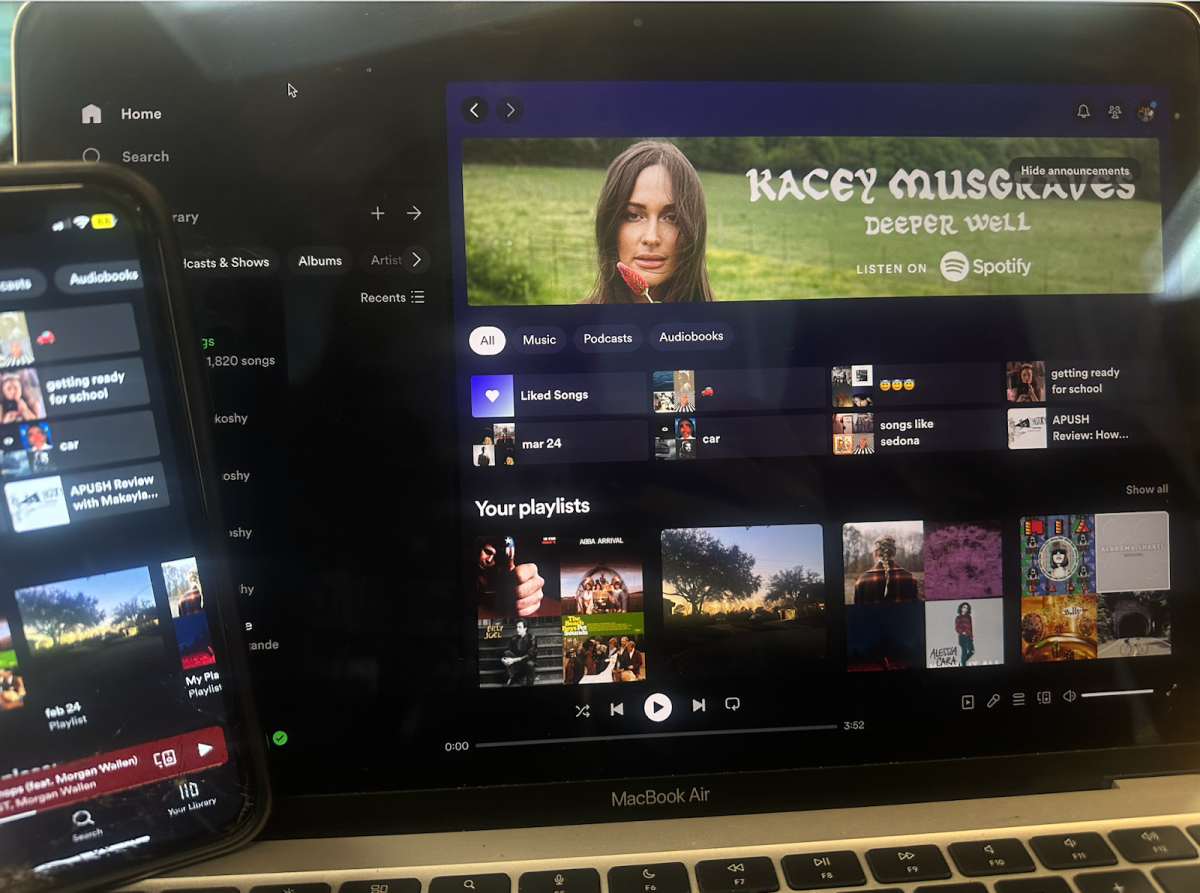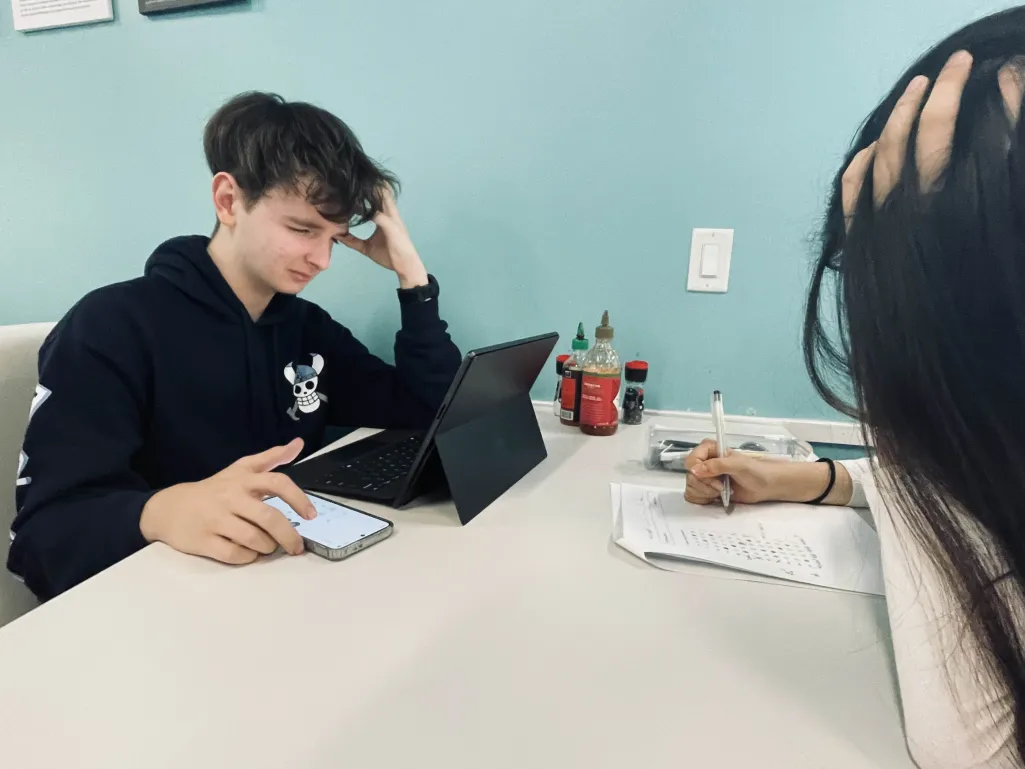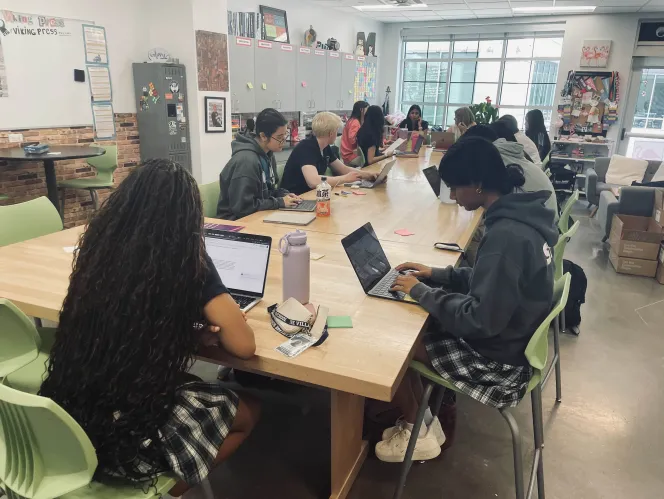In class, at the gym, doing homework, and walking around, The Village School students are often spotted with AirPods in their ears, but what are they listening to? For many students, music is a topic of conversation, especially with what’s popular across friend groups, Spotify-wrapped, and millions of genres in hundreds of languages and cultures. Undoubtedly, The Village School is diverse, but how does that affect music taste? With over 700 students in the high school, over –% listen to music during school hours. How often do students listen to music in school? What does music and their music taste mean to them? Your very own The Village School students will answer all these questions, and maybe even inspire others to branch out their music taste.
Although most teachers and staff at The Village School would prefer to not be second place to a pair of wireless earbuds, setting personal opinions aside, students genuinely believe that listening to music benefits them during school. “It blocks out background noise and gets me on my grind.” Said sophomore Samantha Ochoa Martinez. Many students at The Village School have the same opinions that are backed by professionals. “Music activates both the left and right brain at the same time, and the activation of both hemispheres can maximize learning and improve memory.” says Dr. Masha Godkin, a professor in the Department of Marriage and Family Sciences at National University. Other Village Vikings have supported this statement, saying that music becomes a part of their lives. “Whenever I’m doing work, and I’m trying to focus, I’ll put in my AirPods and listen to music,” says sophomore Poli Colacelli, when asked how often she listens to music during school. Is this why we see so many students across campus with AirPods? Or is it that music is a pillar of conversation for high school students?
Discussing music taste can forge friendships, relationships, conversations, and acquaintances, especially in such a diverse school. Recommending songs, swapping playlists, and discovering new artists are what make so many social connections, and it’s an easy way to do it too. If you like Taylor Swift, Drake, SZA, and Bad Bunny, you might like Gracie Abrams, 21 Savage, Brent Faiyaz, or Feid – and with those artists, there are even more similar ones. “You can tell a lot about someone just from their music taste and what songs they like,” says Colacelli. Different people’s music tastes can influence other people, and open them up to new genres. “I’ve been influenced by my friends’ music tastes, we will be in the car, and they will play their favorite songs over and over, and then I start to like them,” says Ochoa Martinez. Especially in high school, music taste is something that plays a part in figuring out who you are. Every lyric, song, or album you find relatable, someone else does too, and there’s a whole relationship to be built on that. “I’m proud of my music taste because I feel like if someone wants to know who I am as a person, they could just look at my Spotify,” says sophomore Maria Antunes. This plays further into the role of why music taste plays into individuality as a person, if you’re listening to music every day, for hours on end, shouldn’t that be part of who you are as a person?
Undoubtedly, the music we listen to is a big part of us, and how we think. That song that you just hummed on your way to math? It was in your friend’s AirPods two hours ago. Music taste is a common language that many high schoolers can share and one that forges ties that will end in your best friends. Debatably, Music is essential to the high school experience, even if it’s different for everybody.








